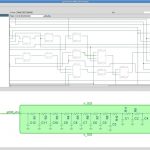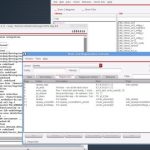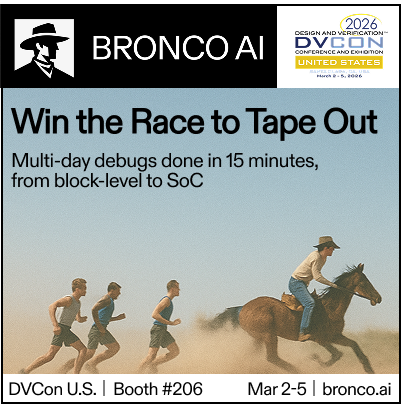You are currently viewing SemiWiki as a guest which gives you limited access to the site. To view blog comments and experience other SemiWiki features you must be a registered member. Registration is fast, simple, and absolutely free so please,
join our community today!
In a typical analog IC design team, multiple engineers and layout professionals work on cells and libraries. At various points during the design process they will commit changes to their designs into the Design Management (DM) system that manages their files – be it Subversion, Perforce or some other commercial tool.
Using the… Read More
Monday morning at DAC I met with Real Intent to get an update on their SoC sign-off tools:
- Dr. Prakash Narain, President and CEO
- Graham Bell, Sr. Dir. Mktg.
Years ago Prakash was at IBM the only two years that they attended DAC, in an attempt to offer their internal EDA tools to the EDA marketplace. Graham worked at Nassda marketing the… Read More
I’m utterly amazed at how IC-based products are improving our quality of life by implantable devices. The modern day pacemaker has given people added years of life by electrically stimulating the heart. A privately-held company called NeuroPace was founded in Mountain View, California to treat epilepsy by using responsive… Read More
ARM SoC Hardeningby Daniel Payne on 05-30-2013 at 3:11 pmCategories: Arm, IP
Last year at DACI discovered a physical IP company called DXCorrthat competed against giant ARM. This year the company has selected a different direction, so I got caught up with Nirmalya Ghosh, the CEO to hear about the changes.
Nirmalya Ghosh, DXCorr
… Read More
Debugging an IC design at the transistor, Gate and RTL levels is often necessary to meet timing requirements and understand analog or digital behavior, yet the process itself can be a tedious one, filled with manual steps, therefore making it an error-prone process. EDA tools have been created to help us graphically debug transistor,… Read More
There’s never a dull moment in the foundry race to offer FinFET processes that enable leading-edge SoC design. Today I attended a webinar hosted by Samsung and Synopsys on how to enable 14nm FinFET design. The two speakers were Dr. Kuang-Kuo Lin from Samsung and Dr. Henry Sheng from Synopsys.
Dr. Kuang-Kuo Lin, Samsung
Dr.… Read More
Two weeks ago I blogged about analog verification and it started a discussion with 16 comments, so l’ve found that our readers have an interest in this topic. For decades now the Digital IC design community has used and benefited from regression testing as a way to measure both design quality and progress, ensuring that first… Read More
One of the most useful ways to learn about an EDA tool is to talk with other users that have experience with that tool. IC Place and Route tools are complex and yet necessary to implement every SoC designed today, so at DAC in just two weeks you have a chance to hear first-hand from several P&R tool users. To get a better idea about these… Read More
Nvidia designs some of the most powerful graphics chips and systems in the world, so I’m always eager to learn more about their IC design methodology. This week I’ve had the chance to talk with Ting Ku, Director of Engineering at Nvidia about his DAC talkin the Apache booth in exactly two weeks from today. Registration… Read More
My 8 years as an IC circuit designer were at the transistor-level, so if that interests you as well then consider what there is to see from Cadence at DAC this year. IC design technology is changing quickly, so keeping up to date is important for your job security and continual education goals.
Here’s what I would recommend attending… Read More





















The Name Changes but the Vision Remains the Same – ESD Alliance Through the Years